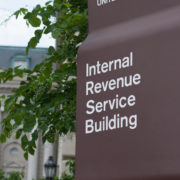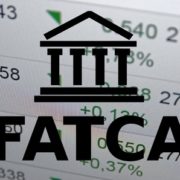Offshore Accounts and the Offshore Voluntary Disclosure Program
The Justice Department Crackdown on Offshore Foreign Accounts
 Since the Justice Department raised the threat of prison time for Americans who did not reveal their offshore accounts, the tax-evader crackdown has proven very successful for the United States government. Since 2008—when the Justice Department began a push against Swiss banks—the U.S. has prosecuted 103 people, including 62 guilty pleas and 5 trial convictions.
Since the Justice Department raised the threat of prison time for Americans who did not reveal their offshore accounts, the tax-evader crackdown has proven very successful for the United States government. Since 2008—when the Justice Department began a push against Swiss banks—the U.S. has prosecuted 103 people, including 62 guilty pleas and 5 trial convictions.
Of the 103 people prosecuted, only 18 received prison time. In almost every single case, the defendants received sentences that were below the set advisory guidelines. During sentencing, judges must weigh guidelines that seek to provide both consistency and fairness across the board. Although the guidelines still exist, they became advisory rather than mandatory as a result of a 2005 Supreme Court ruling in United States v. Booker [543 U.S. 220 (2005)]. Because the average defendant charged with tax evasion is both a first-time offender and likely very charitable due to their wealth, virtually all judges give out sentences below the guidelines.
The Case of Beanie Babies creator Ty Warner and Tax Evasion
Such is the case with billionaire Beanie Babies creator H. Ty Warner. Warner pleaded guilty Oct. 2 to tax evasion related to Swiss accounts in which he held as much as $107 million. Before sentencing, he had paid a $53 million civil penalty and $27 million in back taxes. Though the guidelines called for between 46 to 57 months in prison, U.S. District Judge Charles Kocoras sentenced Warner to two years’ probation, ordering him to perform 500 hours of community service and pay a $100,000 fine. Remarking upon the relatively light sentence, Judge Kocoras stated, “Society will be best served to allow [Warner] to continue his good works.”
Making a Voluntary Disclosure to the IRS
Since 2009, more than 38,000 taxpayers have joined the government’s amnesty program and paid $5.5 billion in back taxes, interest, and penalties. Deciding whether to participate in the Offshore Voluntary Disclosure Program (“OVDP”) or proceeding under an alternative voluntary disclosure protocol requires careful evaluation of the specific facts in each case and should not be undertaken without the assistance of a competent tax attorney.











Leave a Reply
Want to join the discussion?Feel free to contribute!